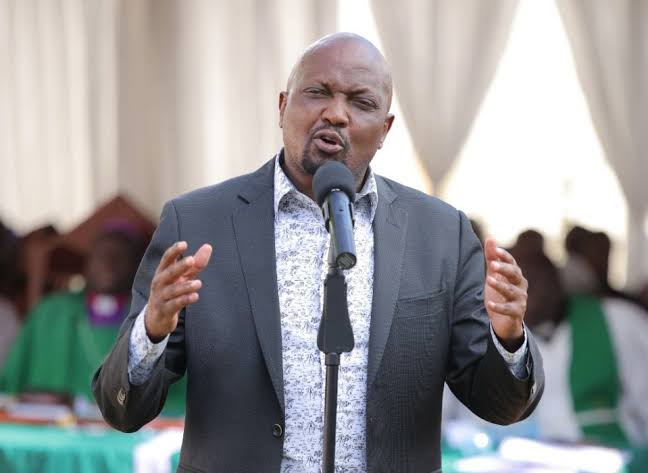

Former senior Economic Adviser to the President, Moses Kuria, has backed the Ministry of Education’s ongoing audit of school enrolment data, saying the reforms will seal massive leakages in capitation funds.
Kuria claimed the country loses nearly Sh12 billion annually to fraudulent claims by ghost schools and fictitious learners.
“The education budget is about Sh700 billion, with Sh120 billion disbursed as capitation. We have been losing at least 10 per cent — or Sh12 billion — every year to ghost schools and ghost students. I fully support the Ministry’s new policy: no verification, no capitation,” he said.
His remarks come as the Ministry intensifies a nationwide verification exercise requiring schools to resubmit accurate data for each learner before receiving government funding.
On Friday, Basic Education Principal Secretary Julius Bitok confirmed that 32,000 public institutions, representing 98 percent of primary and secondary schools, have complied with the directive.
He revealed that only 3,000 schools have so far received third-term capitation, pending full verification at the Ministry headquarters.
“So far, 3,000 schools have been able to receive capitation after being verified to have the correct data on the correct number of students that are in schools,” Bitok said while overseeing the exercise at Machakos Teachers Training College.
He assured schools that funds would be credited to their accounts immediately upon clearance.
“We are anticipating that by the end of next week, all of our 32,000 schools will have received their money,” he said.
To qualify, schools must present each learner’s Unique Personal Identifier (UPI) as reflected in birth certificates, alongside their registration number and certified bank account details.
Verification is being coordinated through sub-county education offices.
Bitok defended the rigorous process as necessary to restore accountability in the allocation of public funds, citing previous audits that exposed serious gaps in disbursement.
“We therefore had no option but to verify the data to ensure that every shilling reaches the right school and the right learner. This is about accountability to the Kenyan child and to the nation,” he noted.
According to the PS, secondary schools are leading in compliance, followed by junior schools, while primary schools have lagged due to internet connectivity challenges.
He cited Masii Boys High School in Machakos as an example of early compliance, saying the school has already received its full allocation.
“I am very pleased that when we visited Masii, the principal confirmed that the funds had been credited to the school account and that operations will now run smoothly,” Bitok said.
The Ministry has extended the deadline for submission of enrolment data to Friday, September 12, 2025, to allow more schools to meet the requirements.
Bitok warned principals and county supervisors who fail to comply that they will face stern consequences, stressing that the reforms are designed to protect learners and safeguard taxpayers’ money.

















